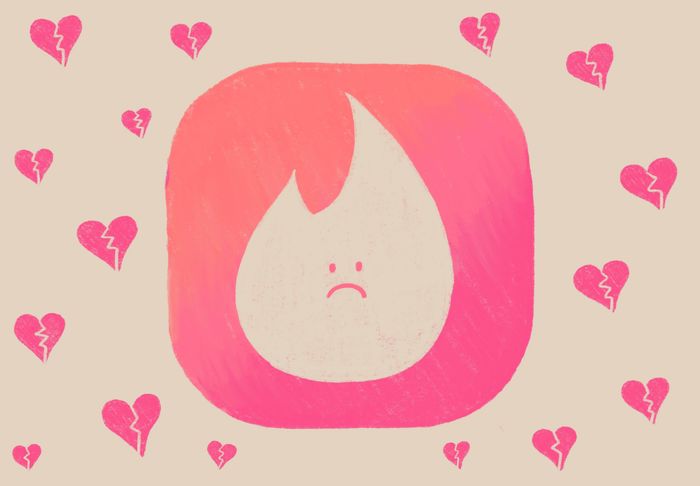On honesty and vulnerability in the age of social media
After a long haitus from instagram, Anna Trowby writes on re-joining the digital platform and her struggles with finding the balance between honesty and oversharing online.
Two years ago, I decided to reupload Instagram after years of not using it. Although Instagram is ultimately just an app, when I logged into my old profile I was completely overwhelmed by the experience of having an online persona again. This might seem strange to most people of my generation, given that many of us have been conditioned to live through the internet. However, having been raised in a sheltered environment that prohibited me from using social media until I was independent (being prompted by my guardians to delete the app after my initial experiences aged 14), I didn’t have the experience of navigating the online space and social media like many of my peers did.
You can then imagine how adrift I felt floating through this strange digital sphere where everyone seemed perpetually happy with their lives, whilst I was struggling with isolation and numerous mental health problems. Since then, I’ve learnt to take these pictures of momentary joy or togetherness with a pinch of salt, understanding that people often want to project images of themselves at their best onto a public platform, without necessarily giving others insight into the more mundane or troubling aspects of their lives.
“Emotions change and dissipate with time…[but] they stick around forever in the digital sphere”
In recent months, however, the pristine image that online profiles offer individuals has come under scrutiny, with influencers and public figures willing to show the more ‘realistic’ aspects of their lives to a mass audience. Chrissy Teigen’s decision to post pictures of herself after the loss of her newborn baby sparked a public debate on whether social media is an appropriate place to put such raw and emotional pictures. When I started to use Instagram again, there were more features that allowed me to interact with my followers and show much more of my life than I expected — videos, 24-hour stories, private stories. I have problems interacting socially already because of my autism, but these problems exacerbated once I used social media again; I didn’t understand the difference between the boundaries that people have on social media, and the boundaries that I usually have for myself in real-life social situations. I assumed that I could show anything of my life, from my highest highs to my lowest lows, on social media, forgetting that this is still an interactive space where people engage with one another.
Whenever I had an emotional breakdown, I would often take it out on social media. It made sense to do enraged stories and hyperbolic posts at the time, because I felt that projecting my innermost feelings online would somehow validate me and make people understand me better. Instead, I ended up isolating myself and misrepresenting who I was online — emotions change and dissipate with time, but once you upload a post documenting those intense feelings, they stick around forever in the digital sphere and make others privy to your most vulnerable moments. I was also inadvertently distancing myself from people who didn’t know what to make of these overtly impassioned displays and making myself vulnerable to people who decided to make judgements about me based on a few posts. It took a friend to tell me that I was going too far for me to reflect on my previous stories and realise that I was exposing too much of myself to people who didn’t know how to react and maybe didn’t know me at all.
Now, I refrain from posting anything that is too personal or close-to-home for me because I know what my boundaries are and how much I want people to see. Although I do feel that it’s important to be having conversations about honesty on social media and reflecting on how ′real′ public figures are, I feel conflicted about the levels of openness we project onto social media. Honesty is by no means a bad thing, especially on social media where everything seems drenched in artificiality. But, given the lack of context around online platforms that you would have in a real-life interaction, as well as the way in which the internet exposes you to a wider audience, I’m reticent to think that social media is an appropriate place for reality. I wonder if there will ever be a time when social media will immerse itself into the intimacy of our day-to-day lives, but for now, it seems to be a distant possibility that I’m happy to leave behind.
 News / Deborah Prentice overtaken as highest-paid Russell Group VC2 February 2026
News / Deborah Prentice overtaken as highest-paid Russell Group VC2 February 2026 News / Downing Bar dodges college takeover31 January 2026
News / Downing Bar dodges college takeover31 January 2026 Fashion / A guide to Cambridge’s second-hand scene2 February 2026
Fashion / A guide to Cambridge’s second-hand scene2 February 2026 Comment / College rivalry should not become college snobbery30 January 2026
Comment / College rivalry should not become college snobbery30 January 2026 Lifestyle / Which Cambridge eatery are you?1 February 2026
Lifestyle / Which Cambridge eatery are you?1 February 2026









